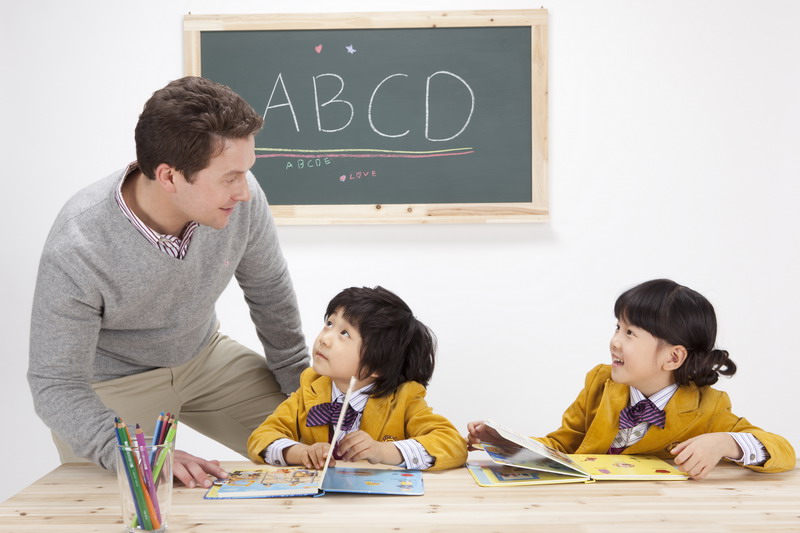“English Education in Korea Has Changed”

Written by Dr. David Shaffer
The Peace Corps and Fulbright – two U.S. agencies that we don’t often think about in the same neuron transmission – have pursued similar goals in relation to English education in Korea but at different times.
English education got off to a slow start in Korea after its prohibition during the Japanese colonial period and due to the ravages of the Korean War. Human resources were scarce, financial resources were scanty, and material resources were lacking. After reconstruction was well on its way and industrialization was taking hold, the U.S. Peace Corps was invited to Korea. Two of its programs that proved to be popular were its middle school and university English programs. Peace Corps volunteers (PCVs) were assigned to select schools throughout the republic, and for almost all the teachers and students that these “native speakers” came into contact with, it was their first time to interact with an L1 English speaker. Novel teaching methods and teacher training programs were also important transfers from the Peace Corps’ programs to Korean government English education initiatives.
One close-to-home event that illustrates the impact that the Peace Corps had on forming English policies and practices in Korea had its beginnings at a Gwangju middle school in Sansu-dong. Chungjang Middle School was designated as a “research middle school,” and PCV Michelle Pierce was assigned to that school as Park Jin-chae’s co-teacher. Together they worked on producing a listening test, something unheard of at the time. This short test of about five tape-recorded questions was piloted at the middle school and results were reported to the Jeollanam-do Office of Education (Gwangju was part of the province at the time).
The Office of Education decided to incorporate this listening test into the high school entrance exam province-wide. “The only problem with this,” recalls Park, “was that copies of copies of copies of the listening test were recorded on portable tape recorders, so the quality of some tape recordings was low.” To remedy this problem for the following year, Park employed the services of the Gwangju KBS radio broadcasting service to air the listening test questions throughout the province at test time to ensure the quality of the test at all testing centers.
The test was a success! Park went to Seoul in 1977 to report that success to the Ministry of Education. The following year, the Ministry approved the recorded listening test method for use throughout the nation. One by one, offices of education adopted the listening test, and it soon became used nationwide on the high school entrance exam that middle school students took. Not too long afterwards, this listening test model was also incorporated into the college entrance exam, much in the form that it takes today. Park, who went on to be an office of education supervisor, a high school principal, and a provincial UNESCO director, related (without any prompting), “Because of the Peace Corps, English education in Korea has changed.”
The Peace Corps closed its programs in Korea in 1981 as the nation became better able to meet its manpower needs in English education. The Peace Corps had not only contributed to English education but also to cross-cultural understanding. “Peace Corps raised English-language education in Korea to a new level,” recalls former Gwangju PCV and present professor at the University of British Columbia, Dr. Donald Baker.
During the following decade of generalissimo government, outside assistance in the area of English education waned, but the government made several policy changes that had monumental effects on English education. Restrictions were lifted on operating English academies, private tutoring was legalized, the number of universities increased by one-third, and student enrollment at colleges and universities tripled! While presenting various opportunities for high school graduates, these also created huge strains on the education system and on society itself.
As it became obvious that Korea was moving away from former generals and towards former activists for presidents, the Fulbright Commission in Korea (aka the Korean-American Education Commission) saw it as a ripe time to establish an English program for Korea. Though Fulbright had been around for over six decades, it never had an English program that supplied American teachers to Korean classrooms until it established the English Teaching Assistant (ETA) Program in 1992. In many ways the Fulbright ETA Program continues where the Peace Corps/Korea program left off.
Fulbright ETAs are recent college graduates, as were most Peace Corps Volunteers. ETAs live with a homestay family just as most PCVs lived with a Korean family. Participants in both programs have/had pre-service skills and second language training as well as cross-culture education to go through. In the words of Lindsay Herron, former ETA (2005-2008) and ETA program coordinator, as well as present KOTESOL president, “The ETAs serve as cultural ambassadors, bringing cross-cultural perspectives and cosmopolitan literacies to the classroom, striving to increase students’ comfort with foreigners as well as help them view English not just as an academic subject but as a means of communication.”
Herron taught at a high school on Jeju Island as a “cultural ambassador” of the U.S. “It’s a heavy responsibility representing an entire populace,” she remarks. Many ETAs teach in middle and high schools, and the elementary school program is growing. ETA program and PC goals are essentially the same: to provide human resources to introduce teaching techniques and educational practices as well as cross-cultural exchange and understanding.
From a pedagogical point of view, providing native-speaker models to the language learning classroom is a plus for various reasons in addition to the above: They demonstrate that English is a real communication tool and that methods other than the traditional ones may more effectively advance language learning. ETAs and PCVs have both served selflessly as change agents for English education in Korea.







